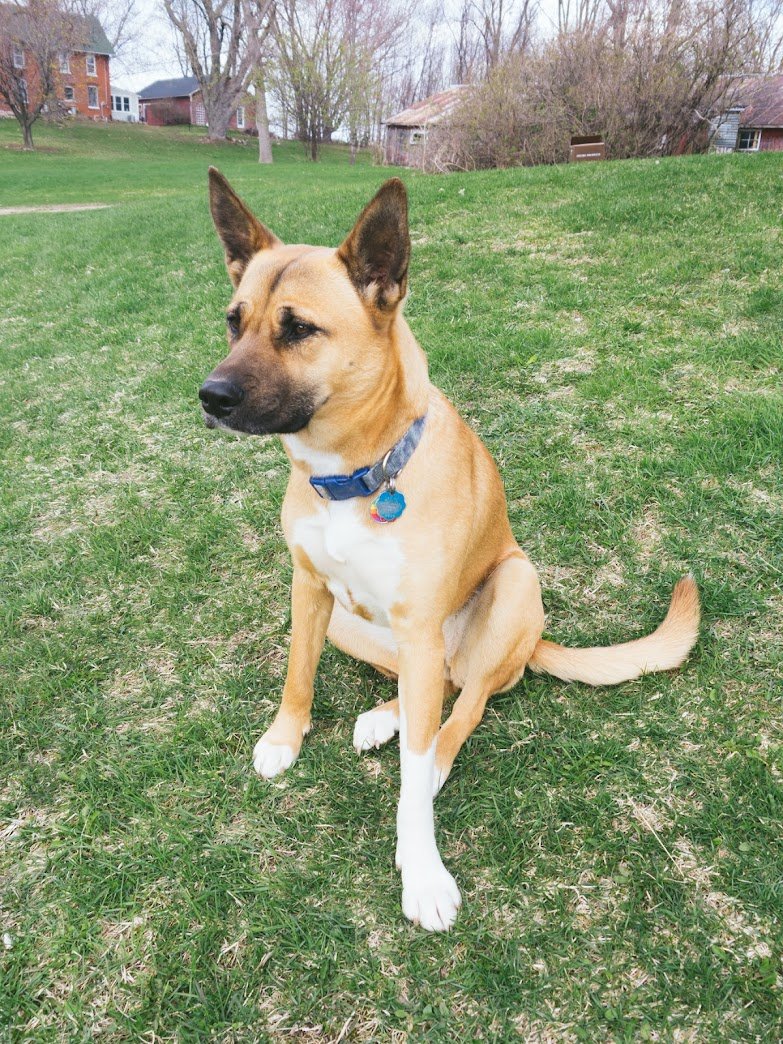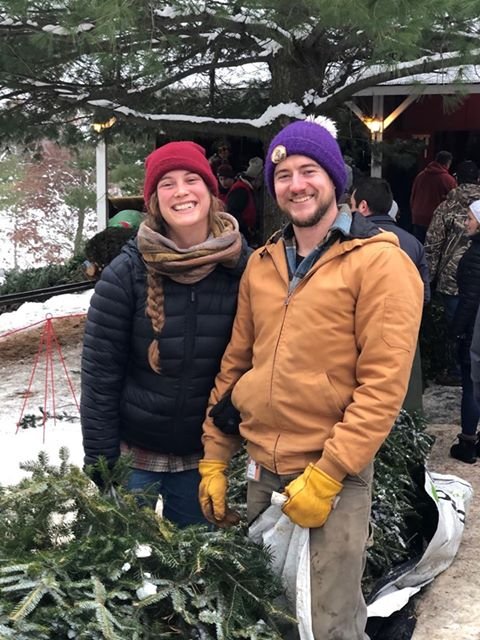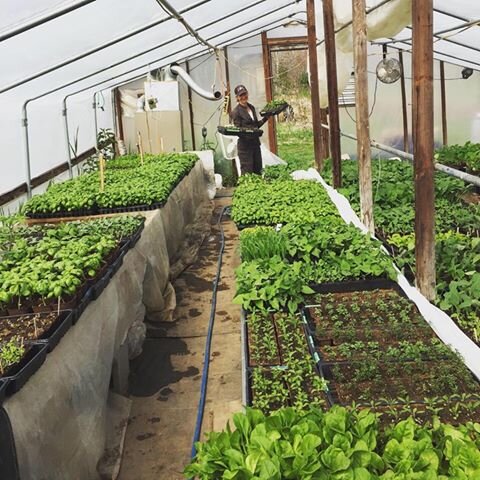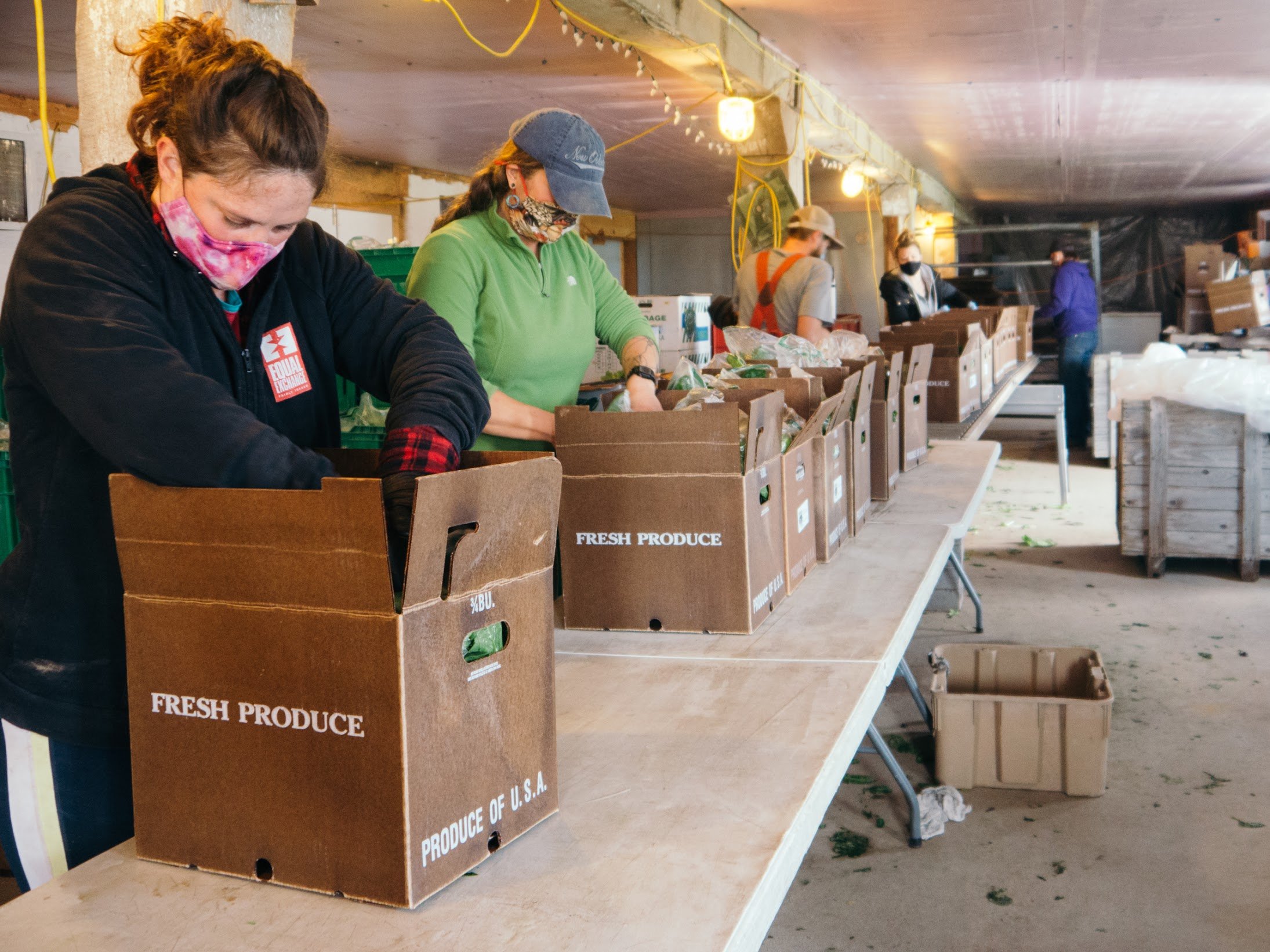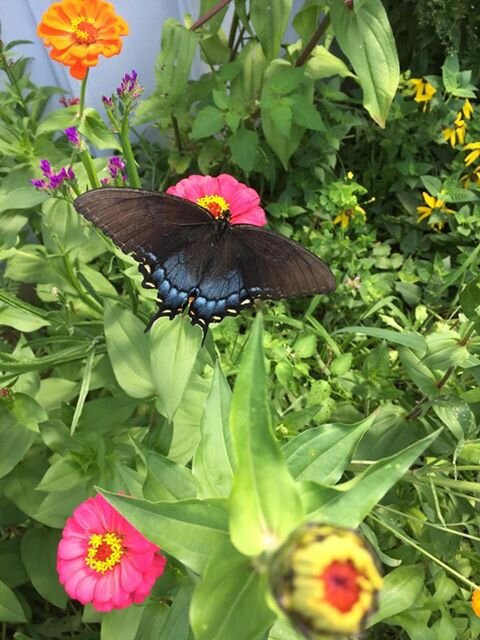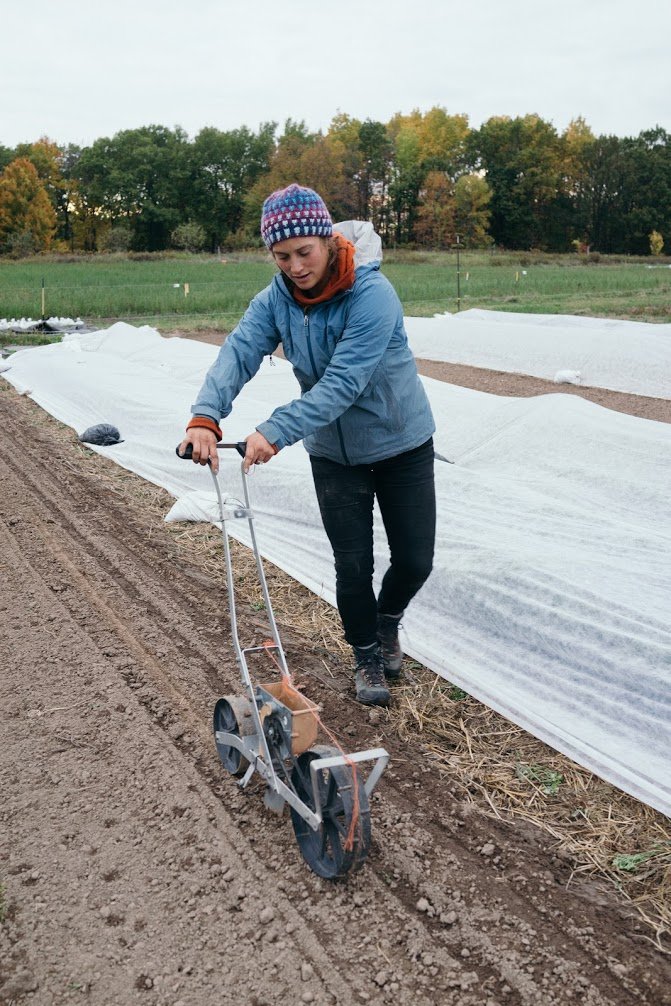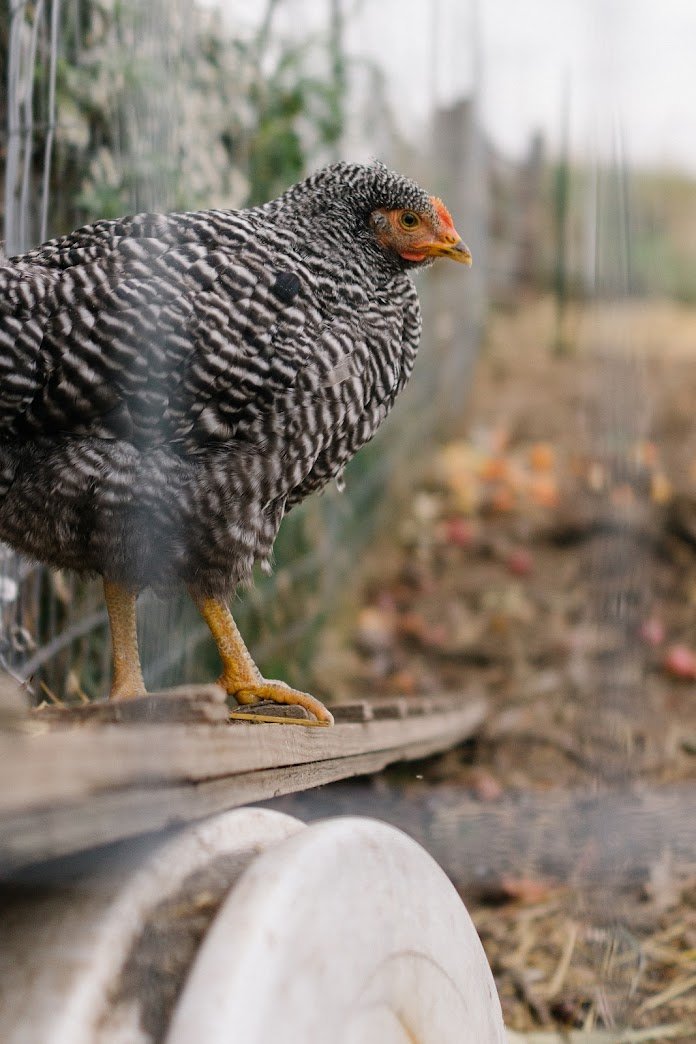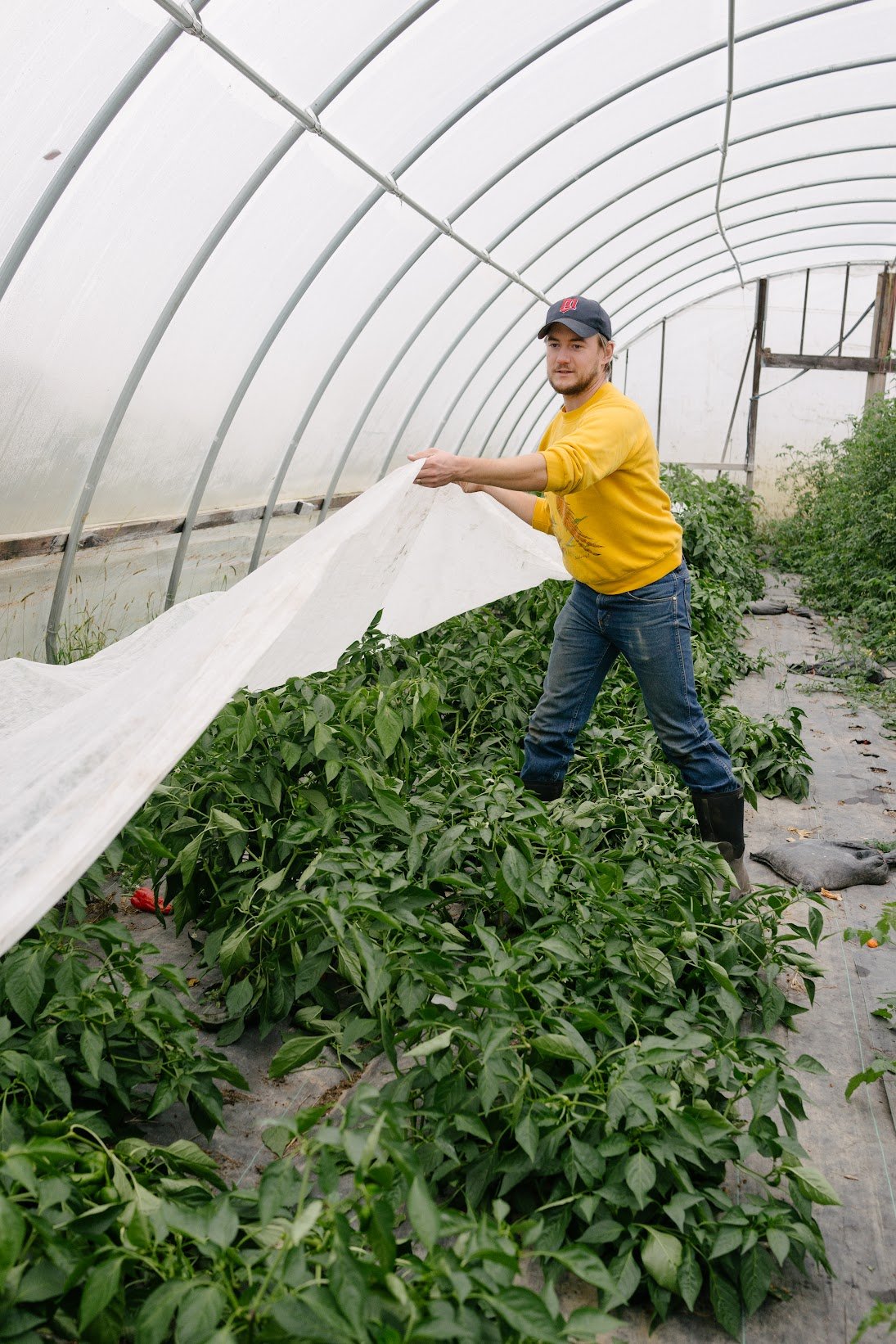Meet the Foxtail Team!
Hi there!
We’re Emmalyn Kayser and Cody Fitzpatrick, the operators of Foxtail Farm. We’re really excited to offer fresh, local, and organic produce to the communities of the St. Croix River Valley and Twin Cities Metro.
Whether you’ve been one of our CSA members in the past, have seen us at farmers markets, or are a newcomer to Foxtail, thanks for checking us out!
Foxtail Farm was founded by Chris and Paul Burkhouse in the late 90’s. The farm has been at its current location in Osceola, WI since 2004. Since the beginning, Chris and Paul were committed to growing pesticide and chemical free organic produce. While their business model shifted over the years from a large Summer CSA to smaller scale Spring and Winter CSAs, their commitment to land stewardship never wavered.
It is with the same commitment to growing nutrient dense food through practices that nurture land stewardship that we took over the operation of Foxtail in 2019.
Farming Background
Emmalyn’s passion for growing began at the University of Iowa where she pursued a degree in geology, focusing on soil science. Healthy soil makes healthy plants, which in turn makes healthy people! After stints volunteering at a small family farm in Iowa City, working on a duck farm in Texas, and growing lettuce in Hawaii, Emmalyn headed to Alaska where her organic farming career began in earnest.
For three summers, she worked at Denali Organic Growers. D.O.G is a unique, 100% off-grid farm serving people in the Denali National Park area. Farming off-grid introduced Emmalyn to the concept of lean farming and no-till practices. These two ideas became pillars for the development of her farming style.
The short growing season and cold temperatures in the Interior demand creativity and ingenuity to keep plants growing. Greenhouses, multiple layers of row cover fabric, and meticulous, intensive crop planning are a few of the skills that Emmalyn developed during her time at Denali Organic Growers.
In 2013, Emmalyn was able to take those skills and transition from a farmer’s assistant to a farm manager. Operating at Camp Denali, a remote lodge in Denali National Park, was a breathtaking experience both in the beauty of the landscape as well as the harsh growing conditions. Being a farmer at the base of the largest mountain in North America proved to be a challenge that she was able to overcome. Through a farm to table kitchen at the lodge Emmalyn was able to providing fresh greens, herbs, vegetables and even tomatoes to guests.
Emmalyn’s experiences gained while growing in Alaska have helped develop the systems we use today at Foxtail to extend our growing season, re-build our soil web and trim down food waste.
A Well Balanced Team
While Emmalyn was running rogue in the wilds of Alaska, Cody was pursuing his first passion: music. Cody has been performing in the Minneapolis area for over 10 years, and continues to write music under the moniker Tumbleweed Connection.
Adventure (and true love) brought Cody to Alaska in 2013. After observing the do-it-yourself frontier mentality, he has spent the past eight years working on what he calls his “blue-collar professional development”. Cody’s drive to attain new skills in carpentry, maintenance and general tinkering makes him an invaluable part of the farm.
While Emmalyn is organically minded, Cody has a more mechanical mind. These two different approaches make for a well balanced set of skills on our farming team!
Human Powered and Minimally Tilled
When folks think of farms, tractors are one of the first things that come to mind. It may surprise you to know that we don’t have one! Our decision to grow without the use of heavy machinery is due to a few factors.
We want to do everything in our power to reduce our fossil fuel consumption, and our reliance on gas powered engines in general. Using a two-wheeled walk-behind BCS “tractor” for some of the work we save a bit on our bodies and only burn a total of 50 gallons of fuel a year!
It’s also important to minimize soil compaction to encourage a soil web to thrive. Compaction (especially for the heavy clay soil we have here in the river valley) makes it harder for water and plant nutrients to find their way into the soil web. In some cases, compaction can encourage runoff into nearby watersheds. We want organic matter and nutrients staying put in our raised beds, feeding the food we grow.
Lastly, a personal ethos helps guide our decision to minimize use of machinery. It’s been our experience that the more physical connections to the soil, water, plants and air that we have through our work as farmers, the more we care and the more we enjoy it! You truly get to know the changes of soil over time. Observe the cycles of bugs, frogs and snakes from season to season and connect with each plant that your hands put in the ground.
While we may be relative newcomers to the St. Croix River Valley, we are both Midwesterners at heart. Our travels have taken us to other countries, islands and deep into the woods of Alaska, but through all of those experiences we’ve concluded that Midwest truly is best!! Thanks for supporting our farming journey!
Centered Around Climate First Agriculture
At Foxtail our want to be good stewards of our land as well as our planet drives much of what we do. It is our belief that agriculture can do a better job at co-existing within an ecosystem rather than terraforming it.
Things like fungus, bugs, weeds and fertility have classically been viewed as the enemies of farmers. Just like most things in this world they come with the good and the bad. Yes. Some fungus can damage or even kill crops. Yes. bugs do feed on plant matter and weeds can siphon needed nutrients from cultivated crops.
However, the environment around us has an immense quantity of biodiversity that has been developing for billions of years with the aim of balance. Good bugs eat the “bad” and beneficial fungus helps bring needed nutrients to plant roots. Weeds can serve as a habitat for birds and beneficial insects like pollinators.
Rather than combat the “bad” parts of our ecosystem with chemicals or other harmful methods we use IPM or integrated pest management. Introducing beneficial insects when we notice an imbalance negatively impacting our plants. Use of bug netting and other physical barriers has also proven very effective. Use of cover crops and other ground covers help suppress weeds and add soil fertility. Compost applications add biodiversity to our soil and increase available nutrients. Fostering natural plantings and perennial buffer zones on our farm has brought butterflies, birds and other beneficial insects like lightning bugs and ladybugs in mass to our fields.
It is through slow steady observation and intention that we continue to grow a farm that aims to be a part of an ecosystem.



